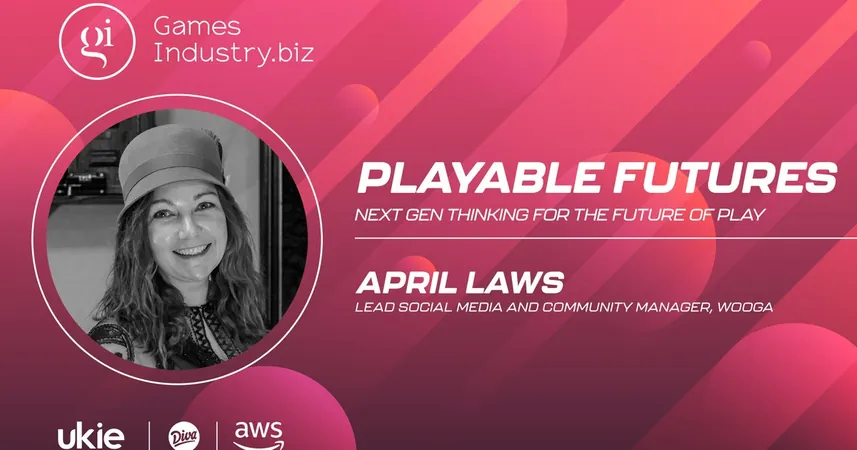
The Impact of Game Community Engagement: How Gaming is Revolutionizing Other Industries
2024-12-23
Author: Emily
The evolving world of video games is not just changing entertainment; it’s also reshaping the very fabric of how businesses across various sectors engage with their audiences. Game community management is emerging as a powerful model for building loyal customer bases, and industries are taking note.
Historically, fostering a fanbase is not exclusive to gaming. Think back to when fans would fill out cards included with vinyl records, eagerly waiting for updates and promotions. By today's standards, these methods seem almost nostalgic. They created loyalty and a sense of belonging, albeit leaving much to be desired in terms of genuine interaction.
Fast forward to the present, and game community managers are leading the charge in nurturing these vital relationships. April Laws, the lead social media and community manager at Wooga, reflects on her journey, noting the parallels between community management and game design. “Community management is all about problem-solving and communication, similar to design. A strong community has become one of our most significant advantages in a competitive industry,” she states. “The loyalty of our community is incredibly powerful; they choose us over countless other gaming options.”
This philosophy is resonating across various sectors, with brands like Nike and Adidas incorporating game-like elements into their products. These companies are leveraging community gamification, using apps that feature leaderboards and challenges to foster engagement. By creating environments where consumers can compete and connect, these brands are reaping the rewards of deeply engaged audiences.
Community engagement transcends mere product interaction; it operates at the intersection of audience and product, forging authentic bonds that yield loyalty. The influence of fandoms cannot be overlooked. When consumers create fan art, write fan fiction, or craft cosplay outfits based on their favorite games, they intertwine those products into their identities. Laws emphasizes, “This is a relationship to cherish. It’s exciting to see people invest their passion and creativity into your games.”
The idea of gamifying communities doesn't stop with fitness brands. Take Duolingo, for example. By incorporating community elements such as rankings, challenges, and user-generated content, the platform has transformed language learning into an engaging game-like experience. Similarly, organizations using creative software like Photoshop have built thriving communities, where users share tutorials and learn from one another, fostering collaboration.
While organic online community building has become a staple in many facets of life—from political activism to hobbies—the rise of live service games and early access models has accelerated the practice of community management in the gaming realm. These models allow communities to actively provide feedback and actively shape the evolution of games, presenting other sectors with a rich blueprint for growth.
Listening is crucial to fostering engagement. Laws highlights, “When people voice their opinions, it signifies they care. Their feedback isn't just data; it involves real emotions and connections.” By valuing this interpersonal relationship, businesses can enhance their products significantly.
The essence of effective community management is human communication. Whether it's the band Coldplay reshaping their community efforts on platforms like Discord or gamified applications by companies like Nike, it’s becoming clear that industries are learning to turn customers into fans by deeply involving them in processes and recognizing their engagement through rewards and achievements.
In conclusion, the influence of game community management is radiating far beyond the gaming industry, setting the stage for a future where successful brands across sectors prioritize building strong, engaged communities. As this transformation unfolds, we can expect to see even more innovative strategies inspired by the world of gaming, ultimately changing the way we connect and interact with products and brands.









 Brasil (PT)
Brasil (PT)
 Canada (EN)
Canada (EN)
 Chile (ES)
Chile (ES)
 España (ES)
España (ES)
 France (FR)
France (FR)
 Hong Kong (EN)
Hong Kong (EN)
 Italia (IT)
Italia (IT)
 日本 (JA)
日本 (JA)
 Magyarország (HU)
Magyarország (HU)
 Norge (NO)
Norge (NO)
 Polska (PL)
Polska (PL)
 Schweiz (DE)
Schweiz (DE)
 Singapore (EN)
Singapore (EN)
 Sverige (SV)
Sverige (SV)
 Suomi (FI)
Suomi (FI)
 Türkiye (TR)
Türkiye (TR)